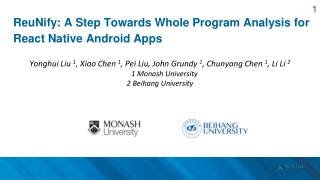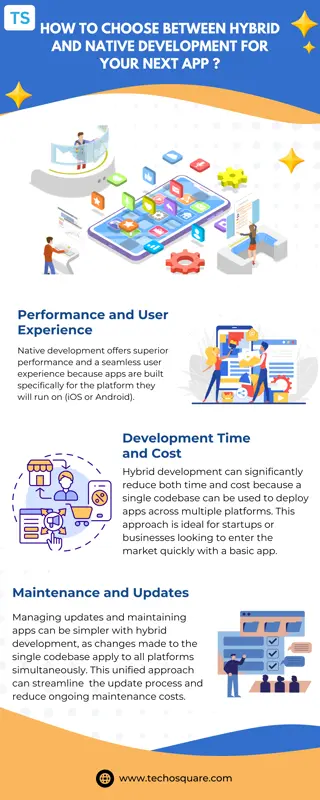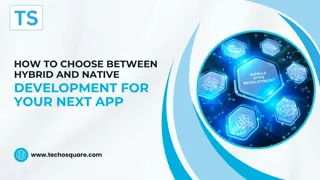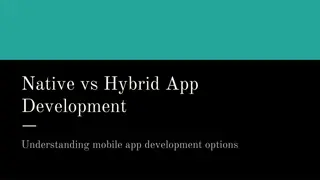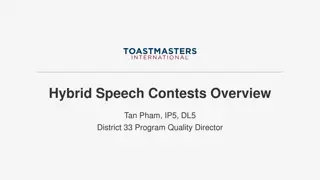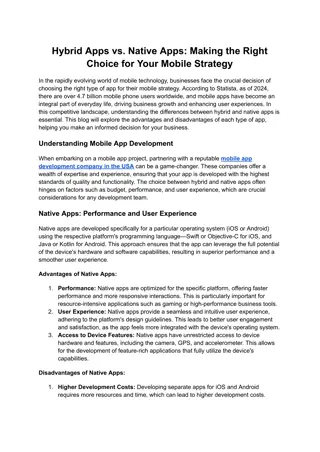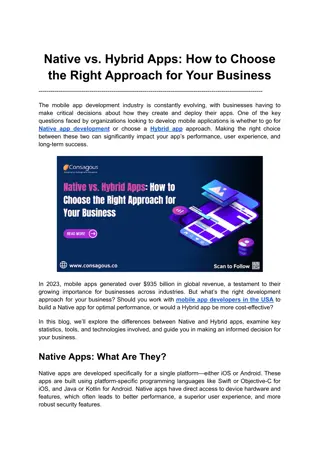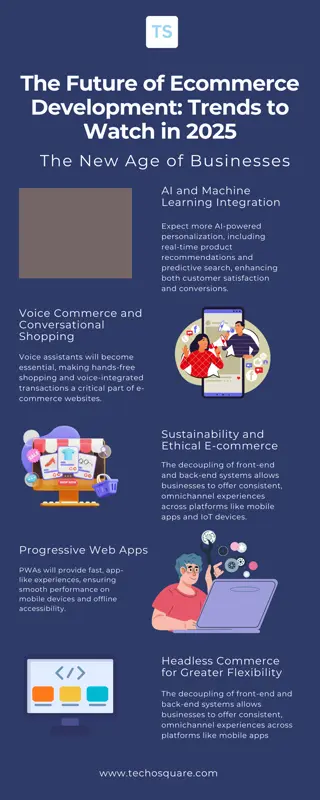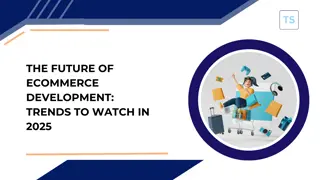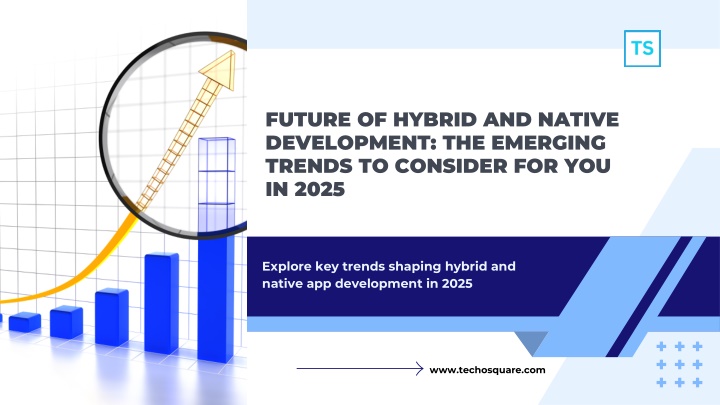
Future of Hybrid and Native Development The Emerging Trends to Consider for You in 2025
The future of hybrid and native development in 2025 will be driven by advancements in cross-platform frameworks, AI-powered automation, and enhanced performance optimizations. Hybrid apps are closing the gap with native apps, while native development
Uploaded on | 0 Views
Download Presentation

Please find below an Image/Link to download the presentation.
The content on the website is provided AS IS for your information and personal use only. It may not be sold, licensed, or shared on other websites without obtaining consent from the author. If you encounter any issues during the download, it is possible that the publisher has removed the file from their server.
You are allowed to download the files provided on this website for personal or commercial use, subject to the condition that they are used lawfully. All files are the property of their respective owners.
The content on the website is provided AS IS for your information and personal use only. It may not be sold, licensed, or shared on other websites without obtaining consent from the author.
E N D
Presentation Transcript
FUTURE OF HYBRID AND NATIVE DEVELOPMENT: THE EMERGING TRENDS TO CONSIDER FOR YOU IN 2025 Explore key trends shaping hybrid and native app development in 2025 www.techosquare.com
Introduction The fast-changing mobile app landscape makes choosing the right framework crucial. Understanding 2025 s hybrid and native development trends helps businesses and developers make smarter, future-ready decisions.
What Are Native and Hybrid Mobile Applications? hybrid Let's start with the two major types of mobile application development currently dominating the field. Native Mobile Applications native Native apps are built for specific platforms (iOS or Android) using Swift or Kotlin, ensuring superior performance, security, and seamless access to device features like GPS and camera. Hybrid Mobile Applications Hybrid apps combine web technologies in a native container for cross-platform use, offering quicker, cost-effective deployment but varying performance.
Trends in Hybrid and Native Mobile Development for 2025 AI-Powered Development & Automation Cross-Platform Advancements 5G & Edge Computing Integration
Hybrid Frameworks with Performance in Mind Performance Gap Narrowing Increasing Developer Adoption Cost-Effective Development Seamless Cross-Platform Experience
AI and Machine Learning Integration Enhancing automation, data-driven decisions, personalization, and predictive analytics for smarter, efficient digital solutions. Personalization & Predictive Analytics Automation & Efficiency Data-Driven Decision Making
PWAs: Hybrid's Rival Cross-Platform Accessibility Cost-Effective & App Store Independence Growing Competition for Hybrid Development
Native vs. Hybrid Apps: Which to Choose? Choose Native Apps If: You need top-tier performance and smooth UX. Your app requires AR/VR, gaming, or heavy hardware usage. Security is a top priority. Choose Hybrid Apps If: You want a fast, cost-effective launch. Cross-platform compatibility matters most. Your audience uses diverse devices.
What Lies Ahead? Technological advancement will further blur the line between hybrid and native mobile apps. Native development will still dominate areas that require precision, performance, and device-specific functionalities. On the other hand, hybrid frameworks will gain popularity due to their flexibility, scalability, and cost-effectiveness. Native Apps Hybrid Apps
THANK YOU www.techosquare.com +91 (172) 4639432 Sebiz Square, building no. IT C6, Sector 67, Mohali,

